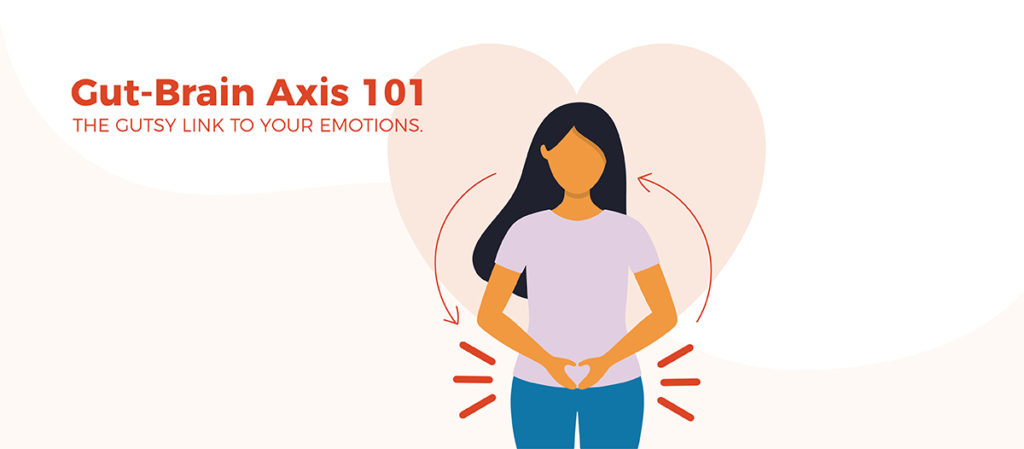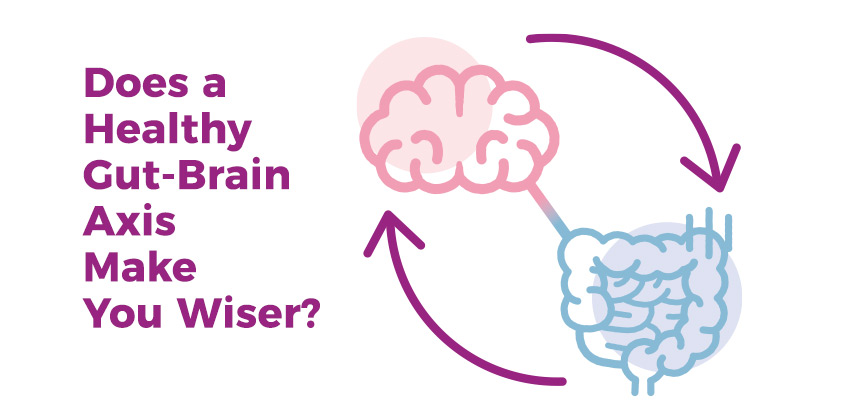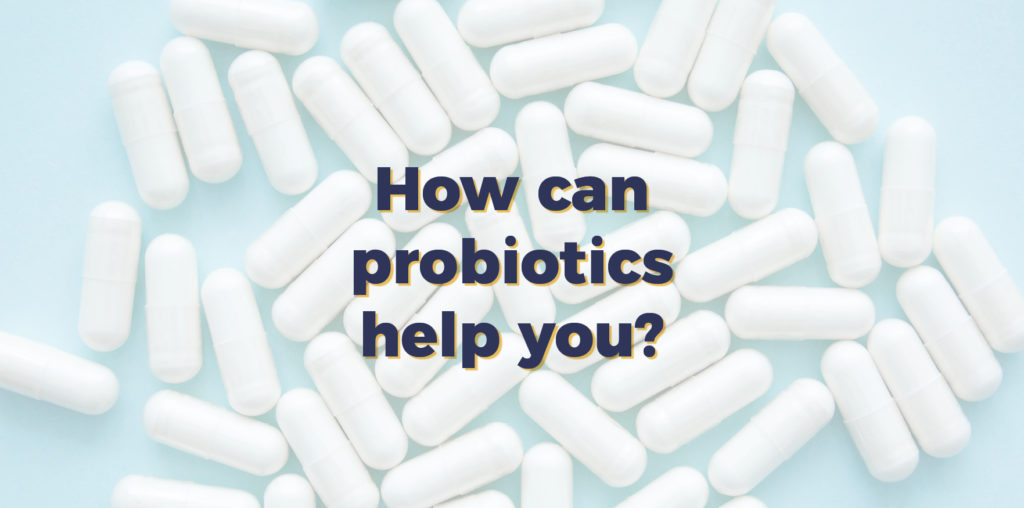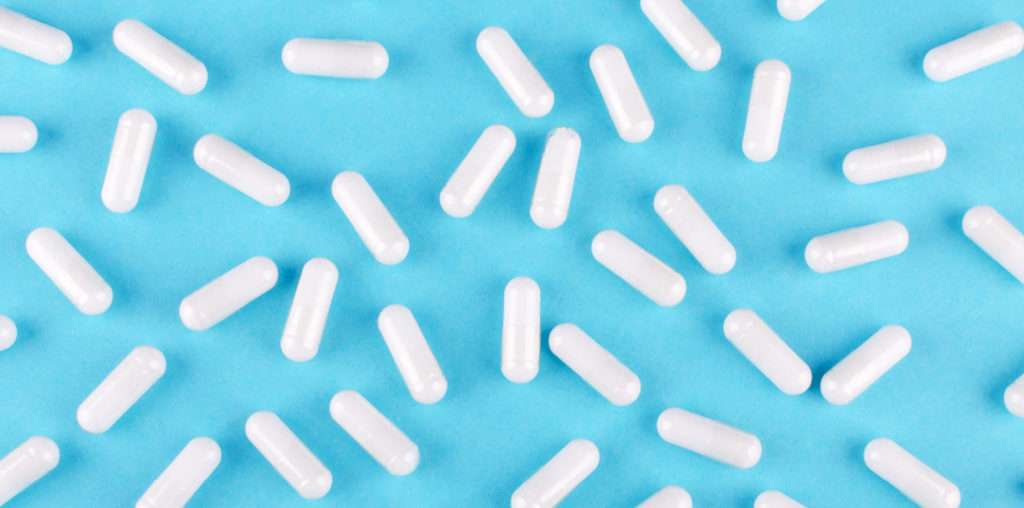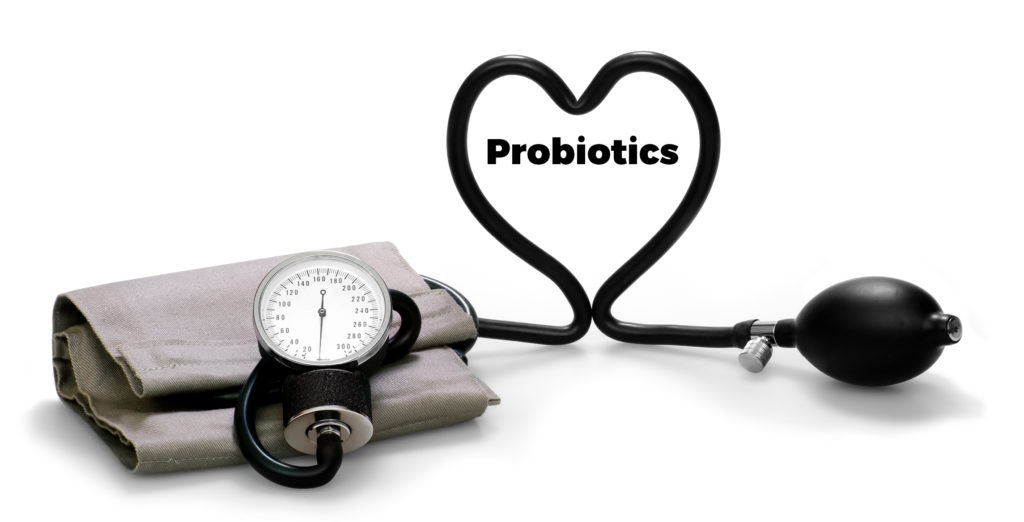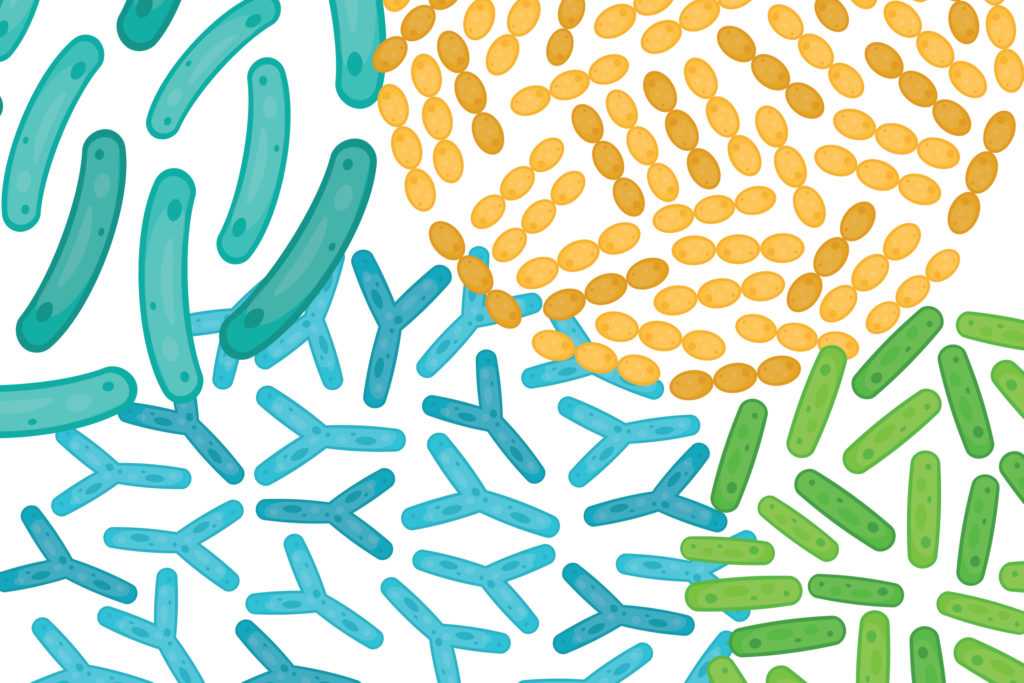Gut-Brain Axis 101
Gut-Brain Axis 101: The Gutsy Link to Your Emotions
How often do you make decisions based on a gut feeling during the day? And, do you notice butterflies in your stomach when you do make them?
We’re not exactly sure about the origins of those sayings but it seems as if we have known about the gut-brain axis — the connection that links the brain, intestines and emotions — for a very long time.
Although its existence had been debated in the past, that became impossible once modern medicine proved some 90 percent of serotonin (a neurotransmitter chemical that governs mood) in the body originates in the human gut, and specific bacteria play important roles in producing it.
The gut and brain are linked by the enteric nervous system (ENS), a network of 100 million nerve cells that line the gastrointestinal tract from the esophagus down to the rectum. Although the ENS doesn’t “think,” it transmits signals between the gut and brain.
Unfortunately, we begin to notice the gut-brain axis in our lives when these two-way signals become scrambled due to disruptions in the healthy balance of gut bacteria due to variables like a poor diet that lead to more stress and less restful sleep.
The good news: There are safe and effective tools you can use to bring balance to your gut and calm your brain.
Protecting Your Gut-Brain Axis At Work
The world of information technology (IT) — encompassing everything from information processing to building computers and websites like this one — is known for the high-pressure, 24/7 demands it places on its workforce.
Given those many stressors, a team of Chinese scientists investigated how to create more emotional stability to IT workers via the gut-brain axis with the help of a daily probiotic.
Out of 90 recruits, 36 IT workers (ages 20-60) met the criteria to participate in an eight-week trial, largely based on high initial stress test scores.
During the trial, workers took a probiotic containing a proprietary strain of Lactobacillus plantarum (one of the 10 strains of beneficial bacteria contained in EndoMune Advanced Probiotic).
After the testing period, stress test scores dropped significantly in terms of self-perceived stress, depression and overall negative emotions as well as gastrointestinal problems.
Additionally, scientists also noted a decrease in cortisol (the body’s primary stress hormone) with a coordinated increase in positive emotions with IT workers taking a probiotic.
The Gut-Brain Health Solution
You can tell the popularity of the gut-brain axis has grown by leaps and bounds given all of the new attention by medical experts looking for alternatives for the alarming rise of prescription drugs to treat anxiety, depression and insomnia just during the coronavirus pandemic.
Making lifestyle changes in the form of eating healthier diets full of nutrient-dense foods rich in dietary fiber and getting more sleep really do matter, but those aren’t the only tools at your disposal if you want to keep your gut-brain axis working as it should.
Taking one more precaution — a probiotic — gives your gut-brain axis the extra protection you need, especially on those extra-long workdays from home or at the office.
Make sure that any probiotic you select contains proven, lab-tested strains of beneficial bacteria and a prebiotic, made from non-digestible plant fibers and carbohydrates that feed the good guys in your gut (they may help you fight cancer too).
It really takes a community of beneficial bacteria and prebiotics to protect your gut-brain axis. That why EndoMune Advanced Probiotic is formulated with 10 strains and 30 BILLION CFUs of beneficial bacteria from the Lactobacillus and Bifidobacterium families, plus the prebiotic FOS.
Resources
Gut-Brain Axis 101 Read More »

